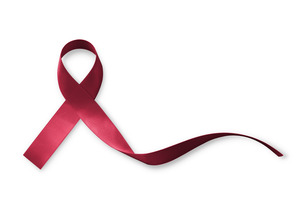
Everyone is fully aware of how dangerous cancer is in general, but how much do you know about oral cancer in particular? Are you familiar enough with the warning signs and the possible contributing factors? Do you know the best strategy for having it detected early? As part of Oral Cancer Awareness Month in April, your dentist is giving you a helpful summary of the basics of oral cancer.
What Exactly is Oral Cancer?
“Oral cancer” refers to any kind of cancer that occurs in either your mouth or the oropharynx (the upper part of your throat that includes the base of your tongue). It could occur in a variety of places, including your lips, gums, tongue, and tonsils.
About 54,000 people in the United States are newly diagnosed with oral cancer each year, and the disease causes roughly 11,000 deaths annually.
What are the Symptoms of Oral Cancer?
You may have oral cancer if you have noticed any sore or irritated spots in your mouth that last longer than two weeks. Additionally, the disease often causes red or white patches to form on the gums or tongue, and there may be unusual lumps as well. If the cancer occurs in your oropharynx, you might become hoarse or notice a change in the way your voice sounds.
What are the Risk Factors for Oral Cancer?
You may be more likely to suffer from oral cancer if:
- You use cigarettes, cigars, or other types of tobacco products.
- You drink a lot of alcohol.
- Your lips are frequently exposed to the sun without protection.
- You have HPV (human papillomavirus).
- You are biologically male.
- You are over the age of 55.
- You don’t get enough fruits and vegetables in your diet.
Even people who don’t fall into the categories listed above could still get oral cancer, so it always pays to keep an eye out for the warning signs in case there are any troubling developments.
How Can You Have Oral Cancer Detected as Early as Possible?
While it’s important to know the symptoms of oral cancer, sometimes you might not realize something is wrong until the disease has already started to spread. Cancer is generally easier to deal with while it’s still localized, so you definitely want to have it caught early. And a good way to do that is to visit your dentist.
Every routine dental checkup includes an oral cancer screening. Your dentist will examine your mouth carefully for oral sores and other signs of the disease. If they have any reason to think you may have oral cancer, they can refer you to the appropriate experts for a biopsy and treatment.
About the Author
Dr. Robert Graffeo has spent more than two decades completing various continuing education courses in order to keep bringing his patients in Hoboken state-of-the-art dental care. At Dentistry Redefined, he offers gentle yet thorough dental checkups that include oral cancer screenings. To schedule a consultation with Dr. Graffeo, visit his website or call (201) 683-3531.
